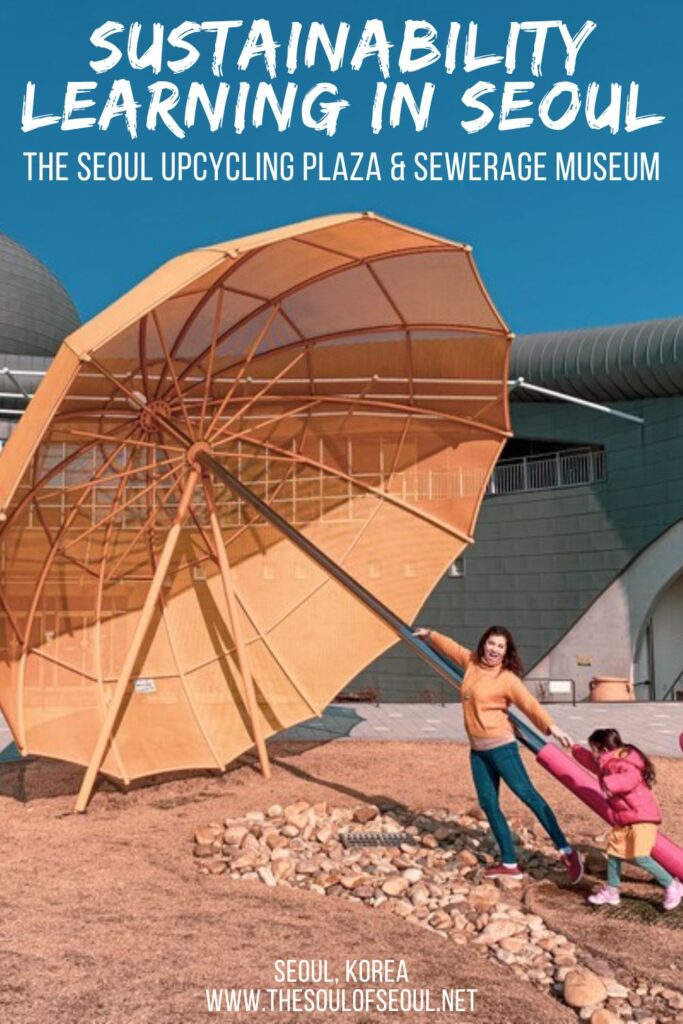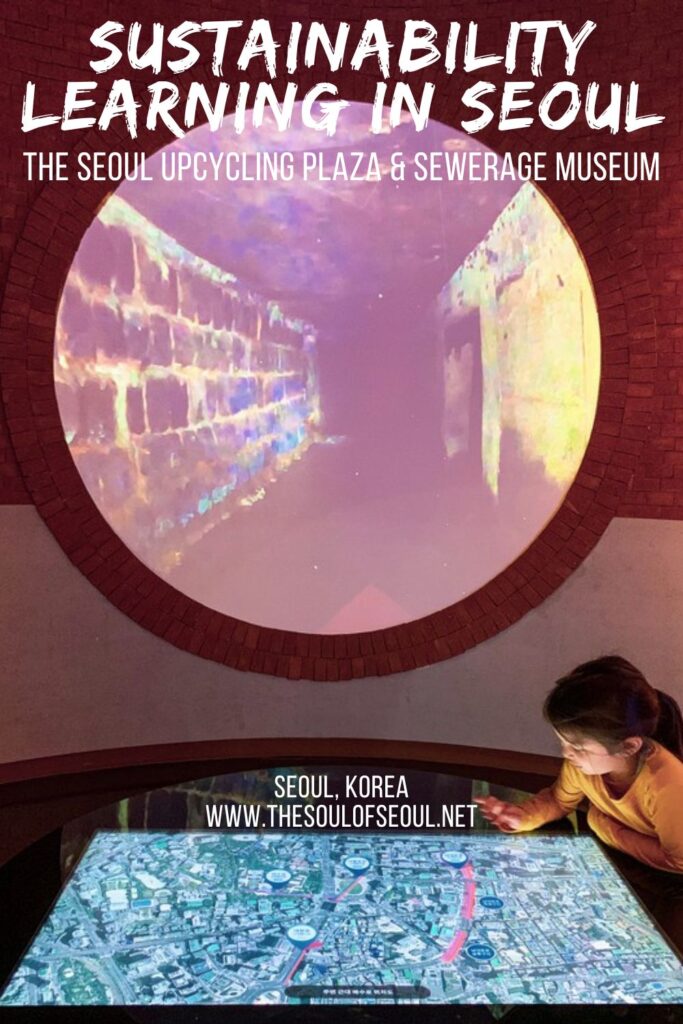Seoul Upcycling Plaza and Sewerage Museum: Learning With Kids
Last Updated on May 21, 2024
Someone recently asked me about where to take kids to teach them about sustainability in Seoul and I realized I had never posted about our trip to the Seoul Upcycling Plaza (서울새활용플라자) and the nearby, literally just in front, Seoul Sewerage Museum (서울하수도과학관).
From how poo goes through pipes and gets reused to upcycling trash, there is a lot to learn between these two cool places. There’s also a great outdoor park here. If you’re looking for some great museums and learning spaces in Seoul, check these two out in Seongdong-gu. It’s just one of many great things to do with kids in Seoul.
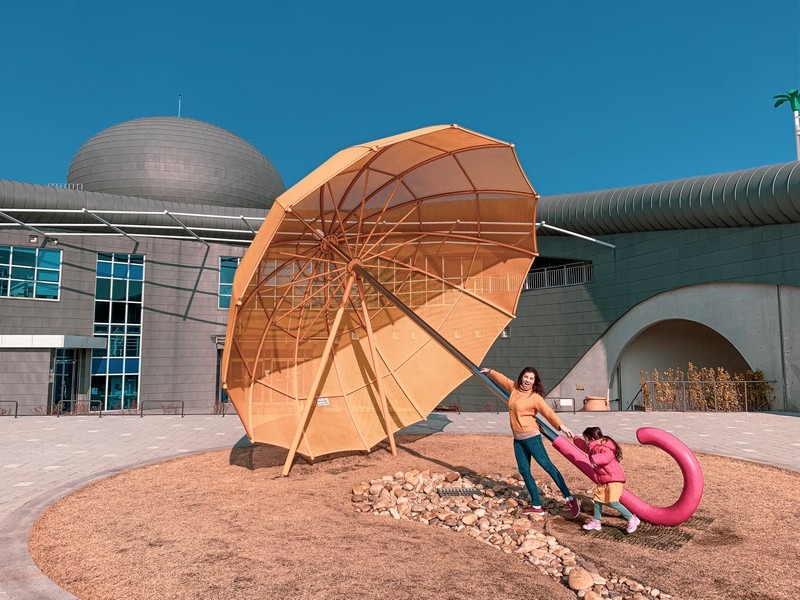
Get ready to learn about sustainability and sewerage in Seoul:
(This post contains affiliate links, which means I receive a certain percentage of a sale if you purchase after clicking at no cost to you. Thank you for your support.)
How To Get There
There is a shuttle bus from the subway to make it easier to get to the complex. Outside of Janghanpyeong Station, exit 8, you can get a shuttle bus 20 minutes and 50 minutes after every hour starting from 8:00am and ending at 6:00pm.
Note there is a lunch break when there is no shuttle bus between 12:00pm and 1:00pm. To return to the subway station, you can get back on the shuttle from the Seoul Upcycling Plaza every 15 minutes and 45 minutes after the hour.
Seoul Upcycling Plaza (서울새활용플라자)
Opened in 2017, the Seoul Upcycling Plaza, or SUP, is a cultural complex space for visitors to observe, learn, and experience an upcycling eco-system. The space aims to raise environmental, social, and economic awareness of upcycling and to establish an environment for upcycling-based industries. They have a citizen-friendly approach to raise awareness and offer experiential programs and exhibitions to get involved.
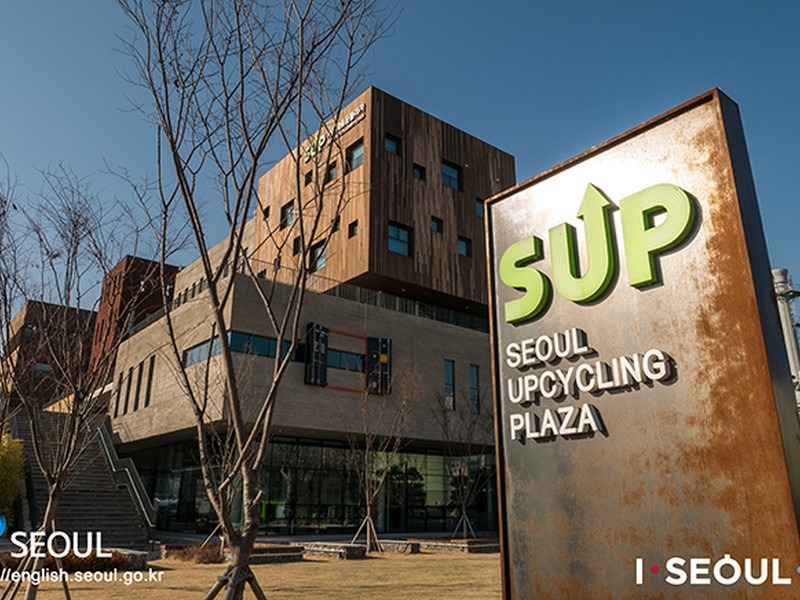
Basic Info
- Address: 49 Jadongchasijang-gil, Seongdong-gu, Seoul (서울 성동구 자동차시장길 49)
- Hours: 10:00am ~ 6:00pm
- Days: Closed Mondays, Chuseok, and Lunar New Year
- Admission: Free
- Website: http://www.seoulup.or.kr/
- Check out the website to see what programs are currently offered.
What To Know
The world’s largest cultural complex dedicated to upcycling, the Seoul Upcycling Plaza takes the act of re-use one step further and offers visitors classes to learn about upcycling, the design process, and you can shop at some of the established upcycling shops there.
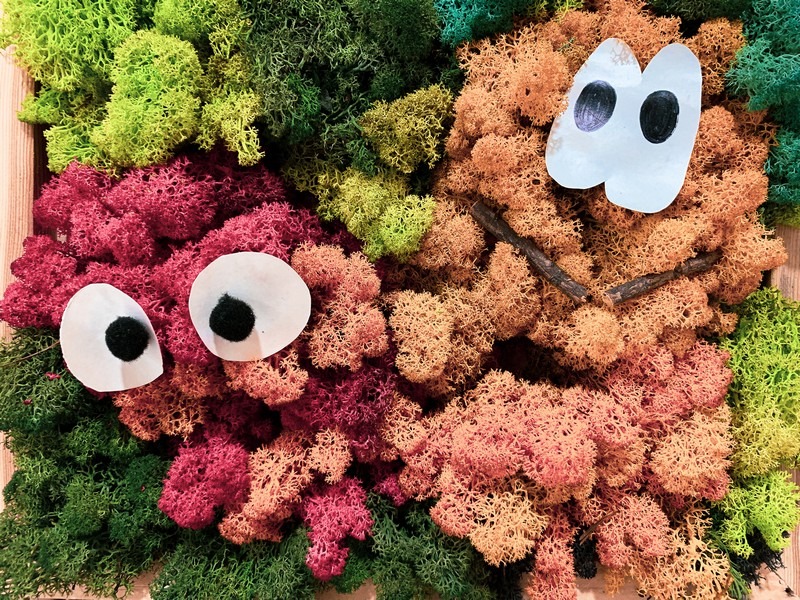
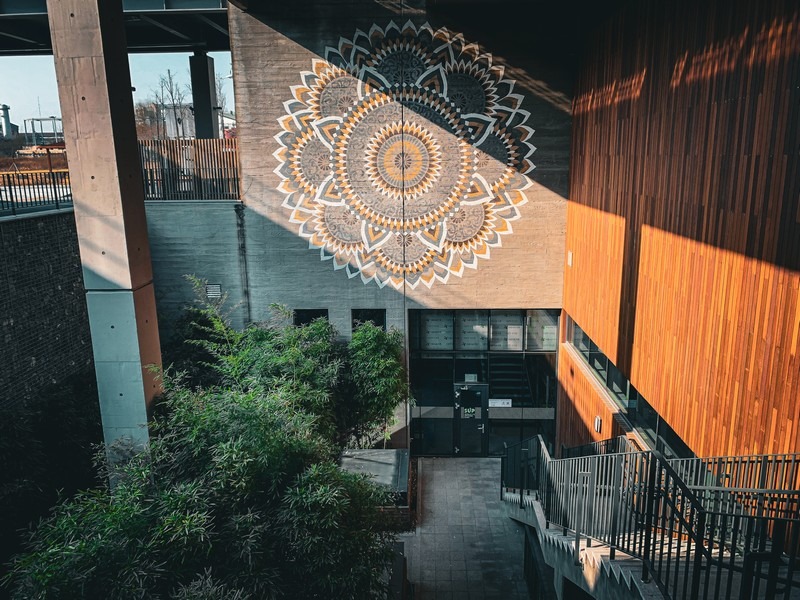
What is upcycling?
An act of finding new value in objects that are discarded by adding designs and discovering new purpose. Upcycling is a new paradigm of recycling resource in order for environmental preservation; carefully considering from the moment objects are made until objects loses it purpose, to extend valuable usage of objects while taking into account of the environment and nature.
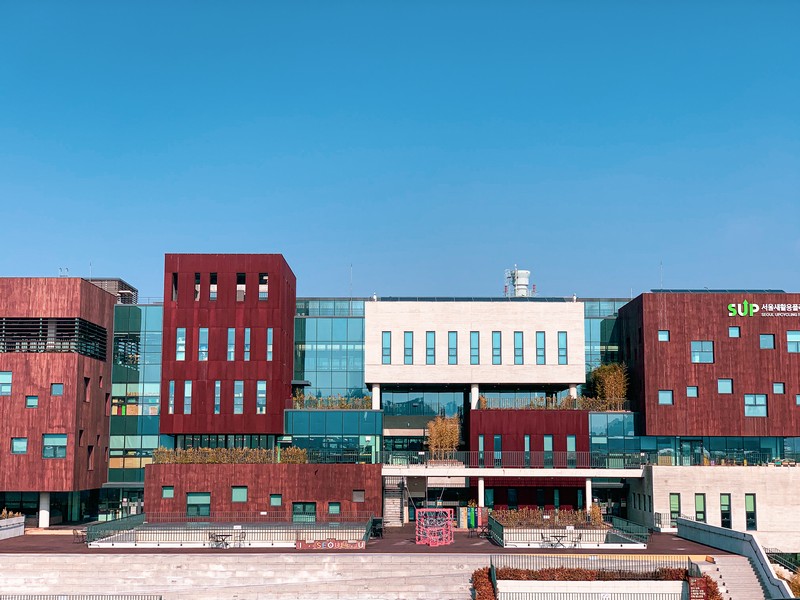
What To See
There are two basement floors and five floors above ground level to explore.
| Category | Main Content |
|---|---|
| Recycling workshop (B1) | Reclassification and processing of donated used goods as new products |
| Material bank (B1) | Collection, processing (washing), and sale of raw materials such as waste banners and fabrics |
| Workroom (3F-4F) | Product production and hands-on training by upcycling companies and artists |
| Factory (1F) | Space for creating, experimenting, and commercializing freely-upcycled materials and products |
| Exhibition room (1F) | Exhibition of works by famous upcycling artists |
| Store (2F) | Sale of upcycling and eco-friendly products, and donation of recyclables |
| Education room | Upcycling experience programs and environmental education programs |
Visit the Eco-friendly industrial experience learning center designated by ECO-UNESCO as an educational space teaching resource recycling and eco-friendly interactive experiences. Visit the SUPer Market and SUP Playground to purchase upcycled products and upcycling kits.
On the 3rd and 4th floors, you can peer into various showrooms to see what local upcycling companies are working on, researching, and designing.
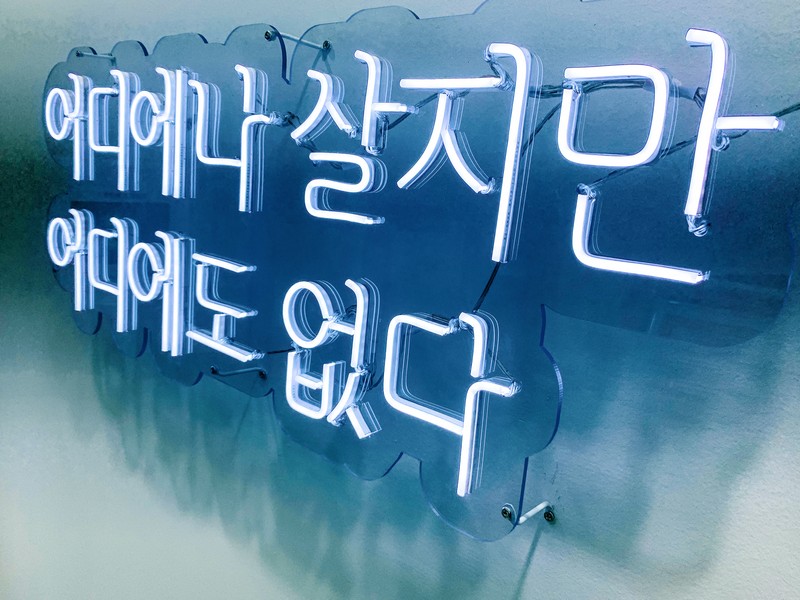
Where To Eat
If you do plan to spend the day out here during the week, there is a restaurant on the 5th floor of SUP that serves healthy, organic, wholesome meals in a buffet style. Meals are available from 11:00am to 1:30pm and between 5:00pm and 7:00pm. But do note that it’s closed on New Year’s Day, Chuseok, and weekends.
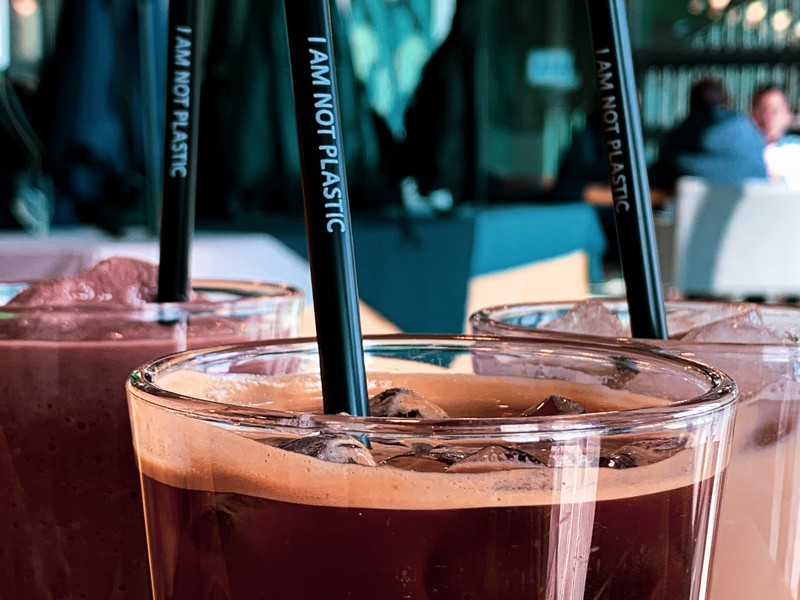
Seoul Sewerage Museum (서울하수도과학관)
Basic Info
- Address: 64 Jadongchasijang 3-gil, Seongdong-gu, Seoul (서울 성동구 자동차시장3길 64)
- Hours: 9:00am ~ 5:00pm
- Days: Closed Mondays, New Year’s Day, Chuseok, and Lunar New Year Day
- Admission: Free
- Website: https://sssmuseum.org/main/
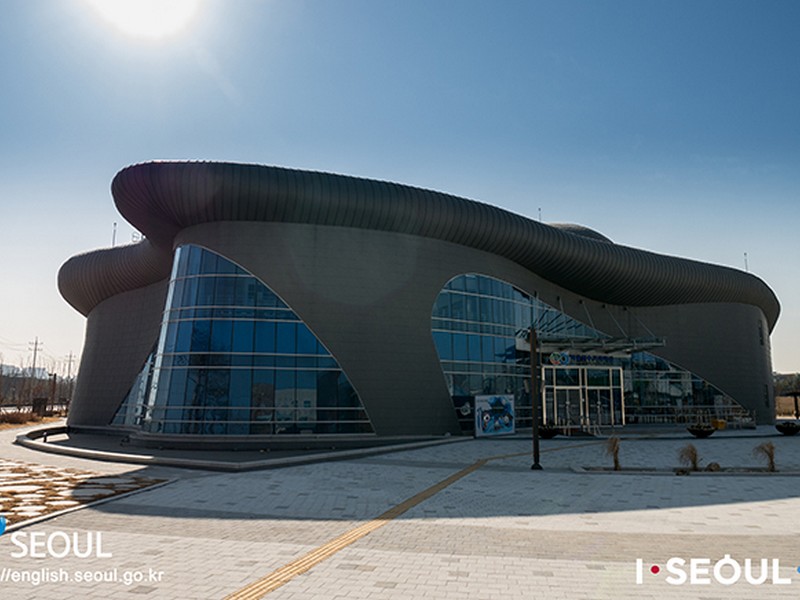
What To Know
Established to promote the history and science behind sewerage, this science museum is the first in Korea focused specifically on the sewerage system. This museum was actually constructed at the site of the Cheonggyecheon Sewerage Treatment Plant, the first sewerage disposal plant in the country.
There are exhibitions that focus on the history, technology, and future of domestic and overseas sewerage systems. They also focus on the water reclamation and environmental education. Children can learn the process of sewerage purification and the significance of water.
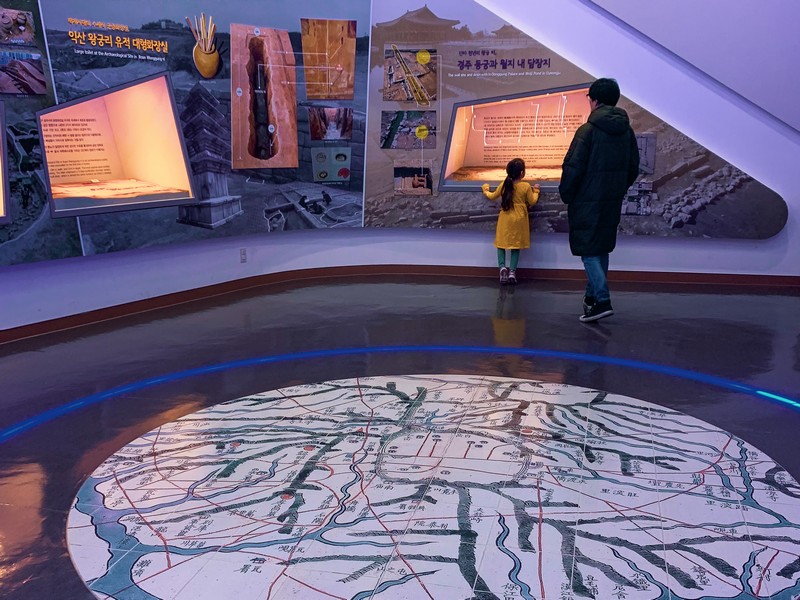
What To See
The first floor is an exhibition hall that focuses on the water circulation process and shows the facilities and pipes system in Seoul. There’s a section on domestic sewage, industrial wastewater, and livestock wastewater, and the causes of sewage.
You might think a museum devoted to the sewage system would be interesting, but it really is and if you have kids who wonder where their poo goes, this is the place to get the answers.
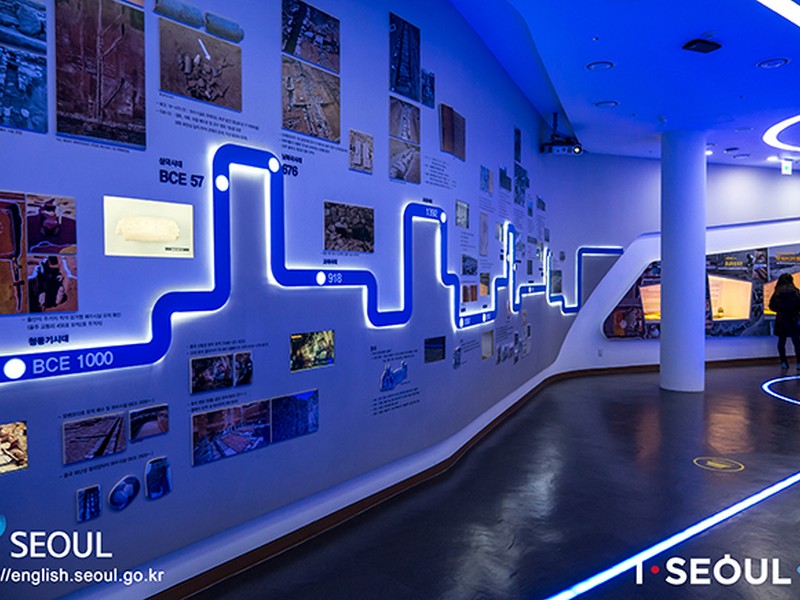
Up on the second floor, the spaces are a more playful way to learn about sewage and waste. My daughter especially intrigued by the old style of toilets. You can see her below putting her head over a “toilet” from Jeju Island. If you have young children, this is where you’ll probably spend more time.
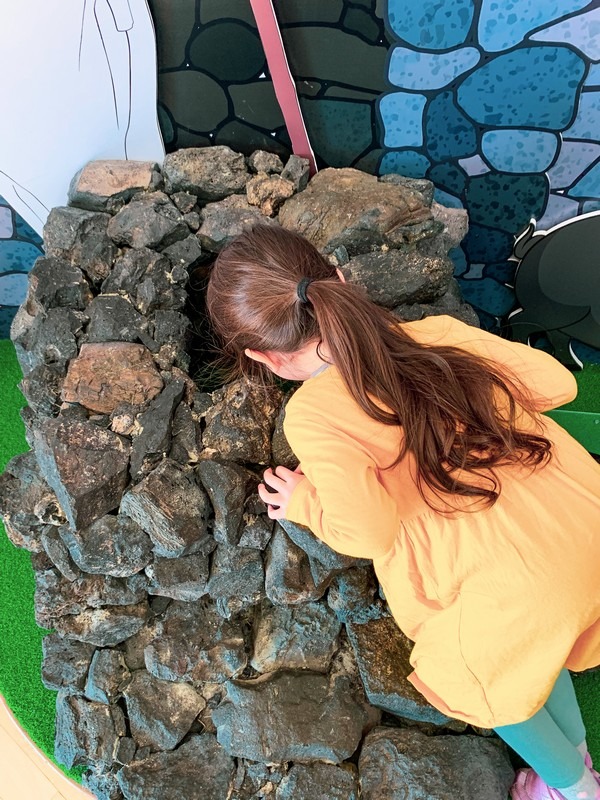
There are various learning opportunities and play rooms so they can get some energy out and learn at the same time. Exhibits focus on the movement of water through the pipes system from toilet to cleaning facilities and then out again. Whether you have young children or older children, there are some great learning opportunities here.
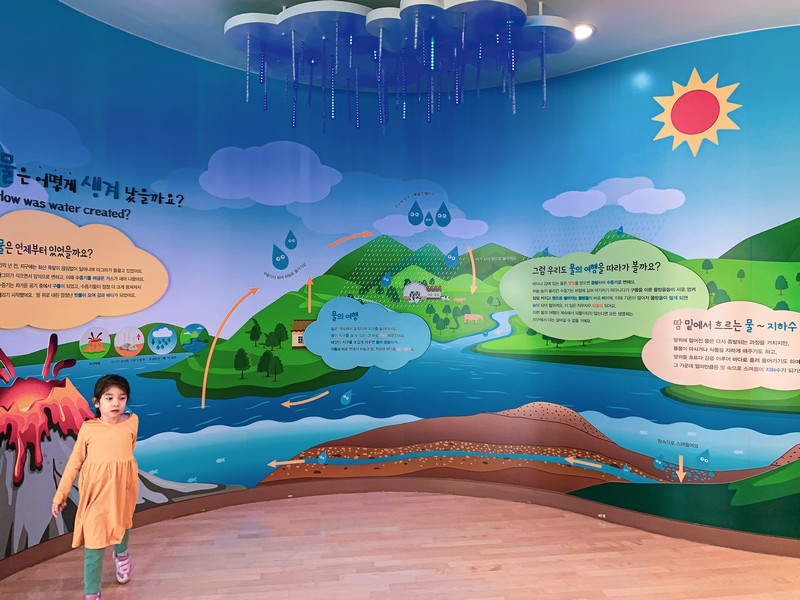
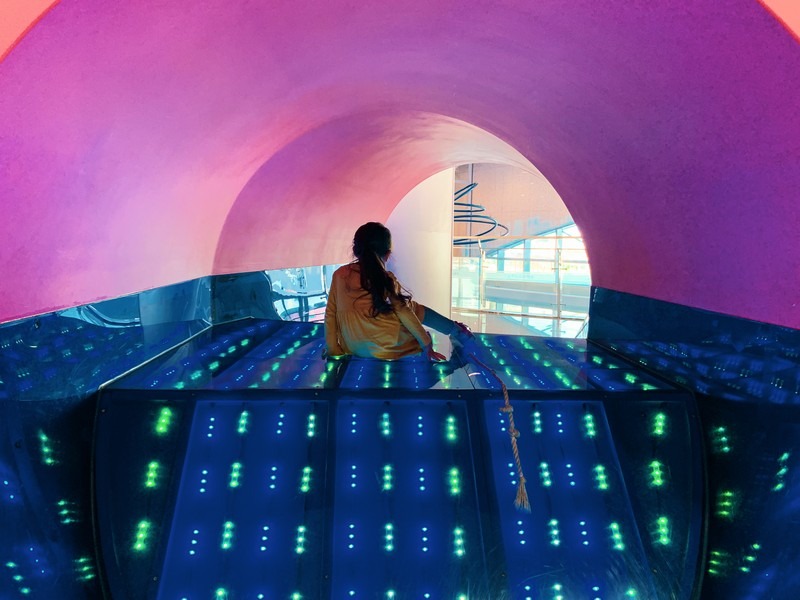
Outside
From there, go outside and there are some fun learning and play spaces outside too. Check out that big slide. But also, though we visited in the cold months, we noticed there are water streams and various things set up so during the summer, that movement of water education from inside continues outside but with actual water. Go this summer and probably take some extra clothes so you can spend the time there.
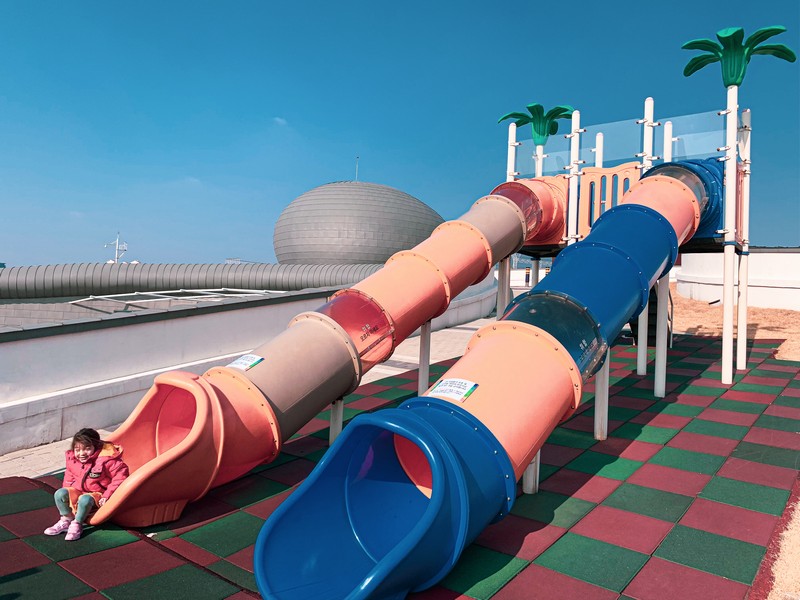
Did you like this post? Pin IT!
